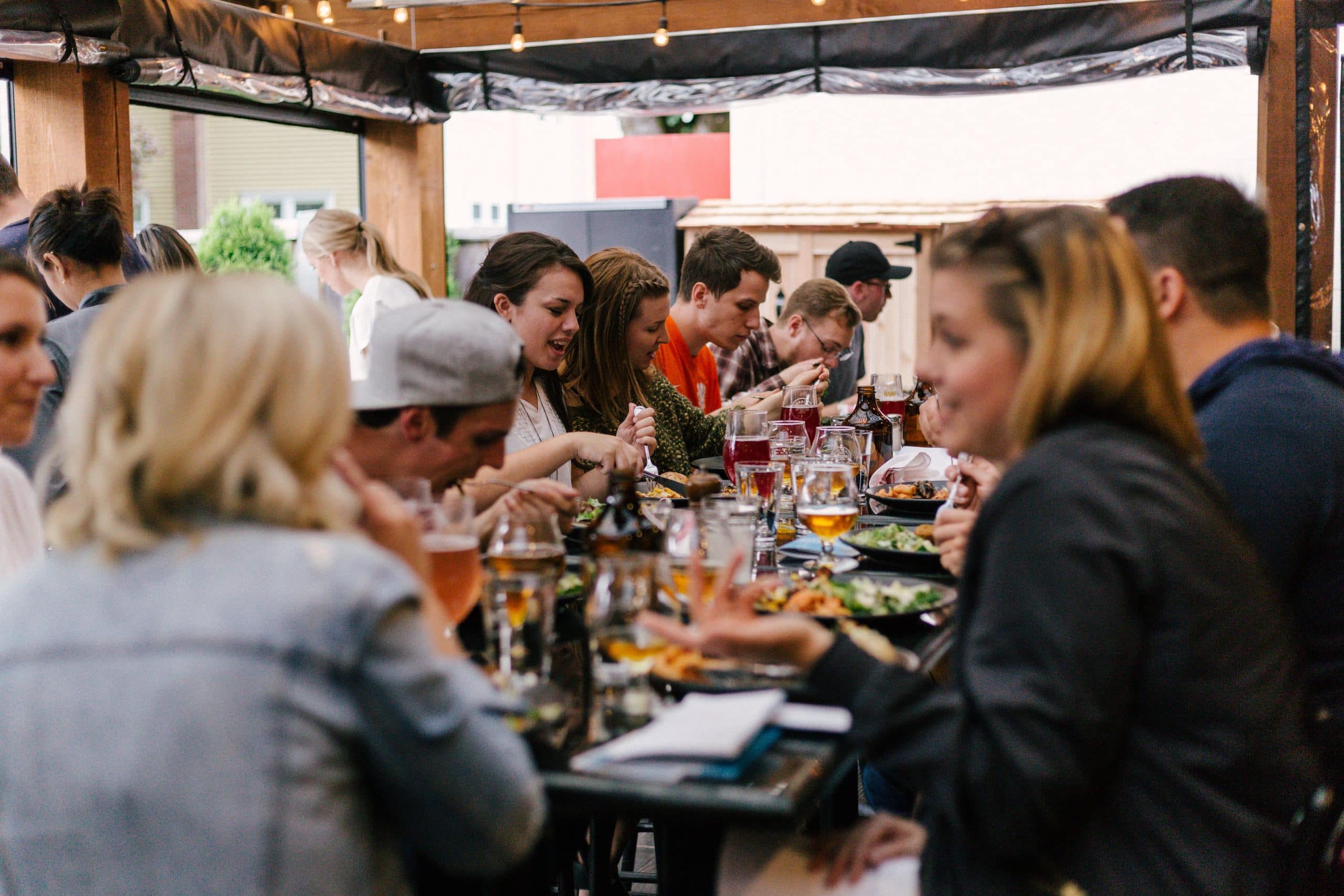What is on this page
Connecting with Others: The Importance of Social Eating in our Lives
As human beings, we have an innate need for connection and belonging. One of the most fundamental ways we connect is by sharing meals. From family dinners to holiday feasts, food is a universal language that brings us together and creates a sense of community.
For those struggling with an eating disorder, however, social eating can be a source of anxiety and fear. The pressure to conform to social norms around food and body image can be overwhelming, leading to isolation and shame.
Despite these challenges, social eating remains an essential part of our lives. It allows us to connect with others, share experiences, and create memories that last a lifetime. It reminds us that we’re not alone and that others share our struggles and joys.
If you are living an eating disorder, you can learn to navigate social eating challenges with confidence and compassion through therapy and support. You can develop coping strategies that allow you to enjoy the company of others without compromising your health and well-being.
Ultimately, social eating is not just about the food on our plates but about our connections with others. It’s about the moments we share, the stories we tell, and the memories we create together. We can nourish ourselves physically and emotionally by embracing social eating to align with our values and needs.
Challenges of Social Eating with an Eating Disorder
For those struggling with an eating disorder, navigating social eating situations can be daunting. The pressure to conform to social norms around food and body image can trigger anxiety, fear, and shame. The fear of judgement or criticism can lead to avoidance of social situations altogether, further fueling a sense of isolation and loneliness.
The challenges of social eating go beyond just the food we eat or the calories we consume. They tap into deep-seated emotions and psychological struggles around self-worth, identity, and belonging. These challenges can trigger disordered eating patterns or exacerbate existing ones, leading to a cycle of shame and guilt.
In navigating these challenges, seeking support and understanding from loved ones and professional help through therapy is essential. Through therapy, you can develop coping strategies to manage difficult emotions and thoughts around social eating. You can also explore the underlying emotional and psychological factors that contribute to your eating disorder, allowing you to heal and grow from the inside out.
Ultimately, the challenges of social eating with an eating disorder are real, but they do not have to be insurmountable. With compassion, understanding, and support, you can learn to navigate these challenges in ways that align with your values and needs. You can develop a more positive relationship with food and your body, and find a sense of community and belonging in social situations.
The pressure to conform to social norms around food and body image can be overwhelming, triggering anxiety and shame. It is possible to navigate these challenges with confidence and self-assurance.
One idea is practising mindful eating. This involves being present and focused on the food we’re eating, paying attention to the taste, texture, and sensations in our bodies. When mindful, we’re less likely to be distracted by external factors such as social pressure, making it easier to make the right choices.
It’s also essential to seek support and understanding from loved ones. Communicating our needs and struggles with those we trust can reduce feelings of shame and isolation and create a sense of community and connection.
Therapy can be a powerful tool in navigating social eating challenges. A therapist can help you to explore the underlying emotional and psychological factors that contribute to disordered eating patterns, develop coping strategies, and create a plan for navigating social eating situations.
Ultimately, navigating social eating challenges confidently requires self-awareness, compassion, and self-care.

Healing and Growth: How Therapy Helps with Social Eating Challenges
Social eating challenges can feel overwhelming if you’re struggling with eating disorders. The pressure to conform to social norms around food and body image can trigger anxiety and shame, leading to isolation and avoidance of social situations. However, therapy can help you find a path towards healing and growth.
Therapy provides a safe and supportive space to explore the underlying emotional and psychological factors contributing to your disordered eating patterns. It allows you to understand your relationship with food and your body. It empowers you to make choices that align with your values and needs.
A therapist can help you develop an understanding and knowledge to navigate complex emotions and thoughts around social eating. They can also address any underlying emotional pain or trauma contributing to your eating disorder, enabling your healing.
In therapy, you can learn to challenge negative thoughts and beliefs around food and your body and develop self-compassion and self-care practices that support your recovery. You can also learn communication skills to help you effectively communicate your needs and boundaries in social eating situations.
You can find community and support through therapy, creating a space for healing and growth. You can connect with others who share your struggles and develop a sense of belonging and acceptance.
Ultimately, therapy offers a path towards healing and growth for those struggling with social eating challenges. It allows you to develop a more positive relationship with food and your body and find a sense of connection and community in social situations. You can navigate social eating challenges through therapy with confidence, compassion, and self-care.

